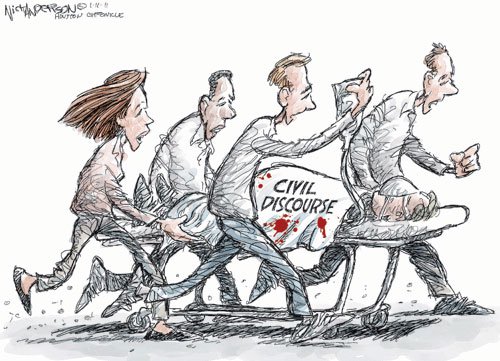Behind every closed door, a professor can be a professor. They can joke about that one student who makes them want to rip the hair out of their head, or complain about the colleague that seems to add salt to the wound of every hard day. Students can empathize. Either we are that student who walks out of class in the most disturbing way or laughs from the corner of the classroom when our professor has finally had it. Or, quite frankly, we have that one friend who makes us want to rip the hair out of our head.
But there is a difference between suffering in silence or complaining in the confidence of friends and making examples of them in public or on social media. At Biola, students and faculty should be held to a higher standard not only by doctrine, but also in action and character.
1. STUDENTS SHOULD BE FIRM BUT RESPECTFUL
University life is a season of personal and intellectual struggle and growth. Freshmen have arrived, in ironic parody of Aladdin, in a whole new world. As many freshmen are leaving their home for the first time, the transition is stark. They are out of the house, they are managing their own time and, contrary to high school teachers, it is not the professor’s job to ride you through every assignment.
Sophomore and juniors have mostly adapted, but are not out of the forest. A friend of mine once remarked, concerning counseling children, “Counseling is hard because you need all of your stuff together before you help others.” In the same way, sophomores and juniors have learned that becoming physically responsible is the prerequisite for beginning your intellectual journey. If your schedule is falling apart and you are living off of doughnuts and caffeine pills, your life of good grades is riding on a thread-bare miracle at best.
Seniors have perhaps the most unfortunate tragedy but the most valuable life lesson. At the moment you are sailing on glass, and a storm is brewing in the distance. Your classes are probably either in the subject you love, or your schedule mastering has allowed you to cruise out the last year with a light workload. However, at this time another series of life decisions are on the horizon—a career, marriage, graduate school and so forth.
All this to say, difficulties and opportunities for growth will be pressing in from all directions—and the professors know this. So do not take the leash they give you and hang yourself with it. Be firm in your intellectual pursuits, seek counsel for life’s many difficulties, but do not cross the line and use your professors’ grace and kindness to make them want to rip the last few hairs they have out from their heads.
2. PROFESSORS SHOULD BE MORAL EXEMPLARS.
To the contrary, university life is much different for professors. Their academic focus and knowledge is not simply a hobby-horse or a platform they built a few days ago. It has taken years of work, dedication and sacrifice which only a few of us students have begun. They are not only gifted with many life experiences and academic successes, but also serve as committed believers and moral exemplars to the students. They are scholars, and, whether it is explicit in their job description or not, mentors.
This means they merit a different relationship with students. Students will make them want to rip the hair out of their heads. But unlike students, acting in turn is so far off professor’s plate it is almost painful to bear. As a graduate student, there have been more than a dozen times I have been tempted to provide a golf-clap in response to a professor’s passive-aggressive comment.
All of this is to simply repeat Uncle Ben’s advice to Peter Parker, “With great power comes great responsibility.” It is never okay for a professor to respond to a student in turn, anger with anger, and it is never okay for a professor to make an example of a student in public or on social media.
3. THE JESUS CARD IS OFF-LIMITS.
The most infamous card Christians play against each other is also the most childish. Too often the go-to critique of another Christian is simply to say, “That is because you do not believe in the Bible,” or “That is because you need a real experience with Jesus” or “A Christian would not say that.” Not only is it childish and immature, but it is revealing.
G.K. Chesterton once wrote, “It is generally the man who is not ready to argue, who is ready to sneer.” This undercutting claim simply reveals the lack of knowledge, professionalism and self-control in such a person.
Students should remember that despite life’s difficulties, their professors warrant respect. However, professors must remember that great power does come with great responsibility.








